- Home
- Fay Weldon
The New Countess
The New Countess Read online
Start Reading
About this Book
About the Author
Reviews
About this Trilogy
Table of Contents
www.headofzeus.com
Part 1
A Visit to Stonehenge
Midsummer’s Day, 22nd June 1905
‘Right on time,’ said Anthony.
‘One should hope so,’ said his sister.
They took it as a good omen, though no more than they deserved. At ten to five the rising sun’s first rays caught the Friar’s Heel monolith: just as they were meant to. The famous stone glowed like a beacon while all around was still undefined, and misty grey. Then all of a sudden there was glorious light, you could see everything bright and clear, and the longest day of the year was upon them.
Then it was time to take the train back to an overcast London. They’d travelled down the night before, snatched a few hours’ sleep at the Rose and Crown in Salisbury, travelled the nine miles by cab to Stonehenge, and each paid a shilling’s entry. Anthony was not particularly superstitious, but he was now Editor of The Modern Idler, a literary magazine, and needed to keep up with contemporary trends. He had observed an increasing preoccupation with all things occult and semi-occult in both readers and writers. Golden Dawns, the sacred fires of the Druids, the leaping and dancing of the cloven-hoofed Great God Pan and so forth now seemed to interest the progressive world almost as much as the wilder shores of experimental sex. If a man was obliged to earn a living, and Anthony now had no other option, he should at least enter into the spirit of things and do it thoroughly. A chilly Stonehenge dawn and a cavorting assembly of chanting white-gowned Druids – male and female and no telling which was which – would make a good editorial and was no real hardship.
Anthony didn’t particularly like going anywhere alone without an audience, so he’d asked his sister to come with him. It happened to be Diana’s birthday – she was twenty-eight, surely a rather terrible milestone for an unmarried woman – and no one else he knew was prepared to get up so early. More importantly, he had a proposition to make to her. He put it off until they were on the train back to Waterloo, during the course of a late Pullman-car breakfast. He had porridge and cream, kippers, and eggs, bacon, and sausages; she had grapefruit segments and scrambled egg on toast. Even the coffee was good.
‘Diana,’ he said, ‘I must talk to you seriously.’
‘I feared that was the case,’ she said. She was a lively, clever, cheerful girl of the kind men made best friends of rather than wives – or so her brother feared. She was bold, direct, noisy, had too pronounced a chin for beauty, and seemed to him to be without any of the erotic principle that men looked for in a woman. Worse, she was penniless, as he was. Their father, Eric, Lord Ashenwold, had died three months earlier having made only the most meagre provisions for Anthony and Diana – the peerage, the estates and the money going to his eldest son and heir Bevis. Yet Diana’s unmarried state did not seem to disconcert her at all.
‘The fact must be faced,’ said Anthony, after the customary clearing of the throat that went before one of his serious announcements (such as ‘We have decided after much deliberation, Mr Kipling – or Haggard, or Benson, or Wells, or Hardy, or whichever wildly successful writer it was – ‘that we will publish your next story’). ‘You are twenty-eight today, Diana, and as an older woman have reduced marital prospects.’
‘Don’t be such an old crotchet, Redbreast,’ said Diana. ‘I daresay someone will come along. Not someone from the peerage, to suit Bevis, not some famous writer, to suit you, but somebody who suits me. Besides, I never want to marry. I don’t like children any more than you do.’
‘A man is not required to like children,’ he said, ‘only to do what he can for them. But a woman most properly is.’
‘Then perhaps I am not a proper woman,’ she said.
‘What can you mean?’ he said. ‘What a pair we are!’
His voice was somehow strangulated, but then many men of his social background spoke in the same manner – as though all statements had to go through some kind of filter before they were released. The Honourable Anthony Robin, a second son, was a tall man with an overhung brow and startlingly blue eyes. He had the commanding and kindly stoop of an old Etonian of the non-sporting kind, but was not, Diana had concluded long ago, necessarily kindly. She suspected he had invited her on this excursion – much as she was enjoying it – not out of altruism, but to forward some devious scheme of his own. She was right.
‘Your prospects being as they are,’ he went on, ‘you have no choice but to earn a living. You can work for me as my housekeeper.’
He waxed lyrical. He had just leased new premises from which to run The Modern Idler. From now on it was to be published monthly. He had found a charming little house in Fleet Street, looking straight into the Law Courts with Chancery Lane beyond. It was an area where journalists came and went and writers had their clubs. It had crooked walls and leaning floors and at night you could hear the death-watch beetle tapping away, though the old oak beams had such hard heartwood he’d been assured all their gnashings were in vain. An eccentric place for a dwelling, perhaps, but a fine one for the editor of a political and literary magazine.
‘Oh Anthony, I see,’ she said. ‘You want me to move in and do all the work? Distemper walls, sand floors, fix lights, buy furniture, I daresay even create a garden where you can drink your coffee while you read your manuscripts and turn down aspiring hopefuls?’
‘It sounds divine,’ he said.
When the building work was done, he said, she could be his secretary.
‘You can type, you can do the layouts, and the pasting up, and you can help with the editing, the subscription lists and so on.’
‘Oh thank you, Redbreast,’ she said. ‘What if you got married and she hated me and threw me out?’
‘I am not the marrying sort,’ he said. ‘You know that. I am a man of letters. I am the philandering kind. I believe in the Life Force and the odd whiff of opium, draught of cocaine. But you know that too. All is legal, all will come from the Fleet Street pharmacy down the road. But I do have my little ways. You will have to put up with them.’
‘I might overlook them,’ she said, ‘if I have half a page of my own in your Modern Idler once a month. Not about fashion, or recipes, or how to polish a kettle, but about politics.’
‘Not under your own name,’ he said. ‘I don’t want to be a figure of fun.’
‘Mrs Humphrey Ward publishes under her own name,’ Diana protested.
‘But she is married. You would be a Miss with no brain or experience. Perhaps you should make a marriage of convenience.’
Diana raised her eyebrows and Anthony Robin said she had until Waterloo Station to think about the advantages of living under his wing. Otherwise he would make alternative plans. They were at Basingstoke, so she had about an hour.
They fell silent. She took honey with her toast. Anthony took marmalade. He opened The Times while she stared out the window at green fields and growing wheat. There was a sudden bark of annoyance from Anthony which quite made her jump.
‘Engineering genius, my foot,’ he said. ‘Bumbling young puppy. Used to be my fag at Eton. How he yelped if I beat him, the crawling little ninny. Couldn’t find his way round a tin of boot polish.’
Arthur Hedleigh had entered his new touring model, the Jehu III, for the Isle of Man race in September, and according to The Times, was considered the new white hope of the British automobile industry. The piece seemed to have quite upset Anthony. Asked why, he said that Dilberne was a sleazy rotter, a jumped-up bounder, a silver spooner, a mother’s darling, an effete cissy, a rogue, and no gentleman – who with his father the Earl’s connivance
had once cheated him, Anthony, out of fifty pounds and tried to get him into trouble with the law. A swinish family.
‘Oh Anthony, I know his sister Rosina rather well,’ said Diana, mildly. ‘She went to Australia and I really miss her still.’
‘You can keep the sister,’ said Anthony. ‘At least, having a brain in her head, she took off for the other side of the world. But the brother – I execrate. He married a thin little Roman Papist heiress from Chicago: no virgin she. I say let him tumble into a vat of his own engine oil and choke to death, and drag her with him.’
‘Oh Anthony,’ she protested, ‘people can love each other.’ His vehemence took her aback. She poured him another cup from the tall silver coffee pot, without using a napkin, forgetting how hot E.P.N.S. handles could get. Something to do with the specific heat of nickel, she imagined, rather than that of the copper of silver plate. Real silver, of course, the proper stuff, was slow to heat. Diana had studied chemistry at Oxford, along with ethnography. She had not been able to take her degree, women couldn’t. It didn’t worry her; when was the world anything other than unfair? Anthony, on the other hand, chafed against injustice. Arthur Hedleigh rankled him because he had his picture in the paper, was going to end up an Earl and he, Anthony, would never inherit a title, let alone catch an heiress.
‘I speak metaphorically,’ said Anthony, ‘but it won’t last. She’s not his type.’
‘Oh?’ asked Diana, interested. ‘What type’s that?’
‘Round, blonde, fair and stupid.’
Diana was wise enough not to ask how he knew – the sooner he calmed down the better.
They were pulling out of Woking in a great cloud of steam and melancholy hooting. Before long they would be at Waterloo. He was right – her choices were limited. She could live as a spinster sister with her rich boring brother Bevis, or as a housekeeper with her less boring brother Anthony. She was not good at making up her mind.
‘Though of course the wife might be the one to stray,’ Anthony said, speculatively. ‘She has quite a past.’
‘Oh Anthony,’ said Diana. ‘Don’t be like that.’
‘I hope she’s unfaithful and gives him hell,’ he said, but she thought he said it as much to punish her, Diana, for not supporting him in his wrath as because he really meant it. Or so she hoped.
‘Oh for Heaven’s sake, Redbreast,’ said his sister.
He wished she would not call him Redbreast: it was a name attached to him in his schooldays when he was young and silly and had edited the Eton Chronicle. And the ‘Ohs’ with which she peppered her conversation annoyed him, she seemed to be always reproaching him. But then, he supposed, that’s what women did. And he was fond of her, and she needed him.
‘Will you?’ asked Anthony.
‘Oh Anthony, of course I will,’ she replied.
Minnie Gives a Birthday Party
25th June 1905, Belgrave Square
‘My life is perfect,’ murmured Melinda, otherwise Minnie, the Viscountess, Lady Hedleigh. But even as she spoke, if to no one in particular, she looked down from the wide windows of No. 17 Belgrave Square and saw a lad, distinctive in the peaked cap and gaiters of the new-style telegraph boy, leaping up the front steps. He had the jaunty air – or so Minnie thought – of someone delivering good, not bad news.
Minnie listened but couldn’t hear the bell over the noise of infant revelry. No doubt bells jangled appropriately in the servants’ quarters. The party had turned noisy, in spite of the subduing presence of nannies and nursemaids. Little children swarmed recklessly from table to floor, shrieked and threw jelly and cake. Isobel, Countess of Dilberne, who had invited her daughter-in-law Minnie plus her two small children to London for the week, winced slightly as greasy hands endangered the pale-yellow chintz of the new upholstery of the morning room, but said nothing. Today was to do with celebration.
‘Ah,’ said Isobel generously, ‘let them have fun. Birthdays are only once a year.’ So the nannies held back and the six little guests and Edgar and his little brother Connor rolled about on the floor and laughed and giggled and kicked one another.
Minnie’s eldest son Edgar was three years old today, and could do no wrong. Connor Hedleigh, born a year to the day after Edgar, could do quite a lot of wrong, at least in the eyes of his English grandparents, not having the saving grace of being the first-born. Minnie had tried to explain to her parents, the O’Briens of Chicago, the necessary complexity of names and titles in the English aristocracy but without success.
‘Mother of God!’ Tessa had protested, when her daughter brought the children over to the stockyards of God’s Own Country for inspection. ‘Why is Edgar a Dilberne and Connor only a Hedleigh? They’re full brothers, aren’t they?’
‘You have to be English to understand,’ Minnie had replied.
‘At least neither one of them’s a bloody Turlock,’ their grandfather Billy O’Brien, the pork baron, had said – fortunately not in Arthur’s hearing. The last thing Minnie wanted was her past raked up; and least of all her doubtful liaison with the deranged American artist Stanton Turlock. Her father liked to speak plainly, but it could be an embarrassment.
Both her sons were fine, brawny, straight-backed lads, of whom their father Arthur was pleasingly proud. Minnie loved them both equally, but perhaps Connor a little bit more, since he was always in trouble and second in line. Edgar the heir would inherit the title. Connor was the ‘spare’. Even Arthur sometimes called him that – ‘the spare’ – as in ‘Tell the spare to stop that noise and be a man’ – although she wished he wouldn’t. She was sensible enough not to say so. Life with her father had taught her that if you asked a man not to do something he was the more likely to do it again.
Now, as the noise level rose, Arthur spoke. He had been sitting at a distance and silent, though smiling indulgently, if perhaps a little fixedly, in his effort not to mind the mayhem. He had a deep voice: it was very male, cutting through the squeaks and squeals of women and children. Minnie loved him.
‘Risus abundat in ore puerorum,’ Arthur said.
‘Oh, Arthur,’ said her mother-in-law, ‘another Latin tag. Just like your father. You are so clever. What does it mean?’
‘Laughter is plentiful in the mouths of small boys,’ said Arthur. ‘But enough is surely enough. The nursery world can be very noisy and annoying. No wonder Father’s found a pressing engagement.’
‘Very well,’ said Isobel. ‘Let there be an end to misrule,’ and she nodded to the bank of nannies who swooped into action as they had been longing to do, and quick as a flash the little ones were back on their chairs again, too startled to object, hands and mouths wiped clean, neat and sweet like the little lambs they were on a good day, little lions no more.
Arthur smiled and caught Minnie’s hand. He had his father’s long straight nose, square jaw and thick blond hair and seemed to gain in gravitas by the year – no longer the boy but very much the man. He had come up to London with Minnie and the boys to spend the day with their grandparents, for once delegating the care of his motor-car workshops to others. Four years and more into the marriage and she found she still thrilled to the sound of his voice, the touch of his hand. She was very lucky.
A pity that the Earl, Grandfather Robert, couldn’t be with them after all. He had been called away as ever by affairs of State – the occasion was genuine enough – some kind of insurrection in Russia that demanded the Privy Council’s attention even though it was a Sunday. With the modern world proceeding at the pace it did, politics was becoming a full-time job, not the diversion of a wealthy and patriotic man. Robert was not one to shirk his duties.
Minnie still found her father-in-law intimidating; but she liked the feeling of being at the centre of things, and sometimes he would regale the assembled company with what was going on abroad or at the Colonial Office, which was one of the reasons she so enjoyed coming up to Belgrave Square. Arthur’s interests were increasingly confined, she was beginning to find, to the insides of au
tomobiles, the beauty of the Arnold Jehu III, the virtues of air-cooled engines as compared to water-cooled. She did her best to stay enthusiastic, but sometimes late at night she would fall asleep on the pillow while Arthur talked.
She’d said something of the sort to Tessa when her parents were over. ‘Better that he’s besotted by an automobile,’ Tessa had retorted briskly, ‘than by some chorus girl.’ And Minnie could see that it was true.
Tomorrow Minnie would go with Isobel to Heal’s to inspect their newly arrived range of bamboo furniture to see if any was suitable for the Belgrave Square back bedrooms – out of the question of course for Dilberne Court, with its massive four-posters, settles and cedar linen chests: the staff would just have to go on heaving and straining and polishing ancient oak – and then perhaps the ladies would go on to Bond Street to look at the new circular skirts from Paris, tiered and braided but two inches shorter than of late, so they cleared the ground and did not require the endless brushing that took up so much of the parlourmaids’ time. There was a great deal in modern life to be thankful for. The form and shape of furniture interested her. Once, she vaguely remembered, she had had dreams of becoming a sculptress. Stanton Turlock had even spoken of her as being a Camille Claudel to his Rodin – not that he had ever got beyond paint on canvas. She liked the touch, feel and colour of fabric, but Isobel’s obsession with fashion eluded her. All the same, for Isobel’s sake she would pretend a deep interest. You opened your eyes wide, looked intent and thought of other things.
Minnie had forgotten all about the telegram, when Reginald the head footman arrived with it on a silver tray. He had taken his time, having no doubt steamed open the thin brown envelope, read its contents, then hastily resealed it. He was a villain, if an amiable one. Isobel opened the telegram, read it, and nodded to Reginald to leave the room. She had the same stunned and unbelieving expression on her face as little Edgar had when suddenly snatched up from the floor and sat in his chair.

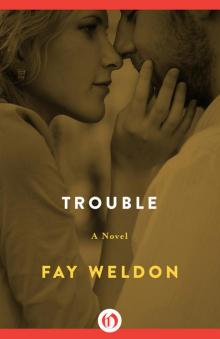 Trouble
Trouble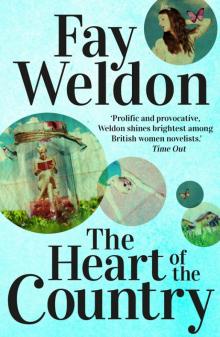 The Heart of the Country
The Heart of the Country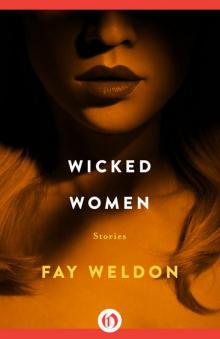 Wicked Women
Wicked Women Mischief
Mischief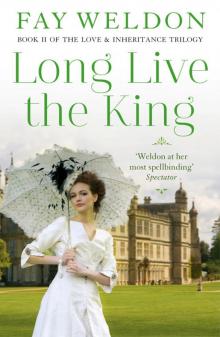 Long Live the King
Long Live the King Remember Me
Remember Me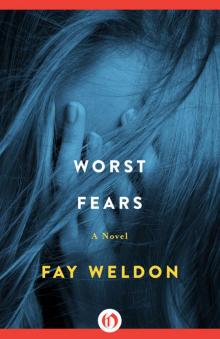 Worst Fears
Worst Fears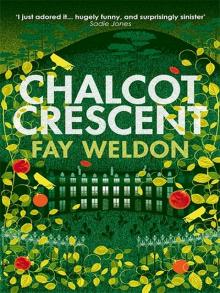 Chalcot Crescent
Chalcot Crescent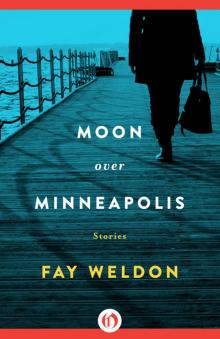 Moon Over Minneapolis
Moon Over Minneapolis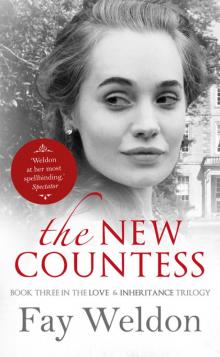 The New Countess
The New Countess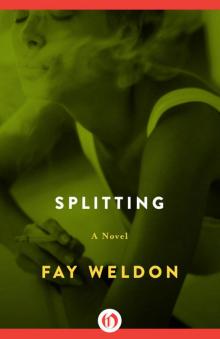 Splitting
Splitting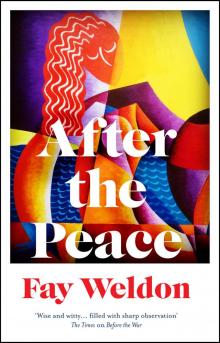 After the Peace
After the Peace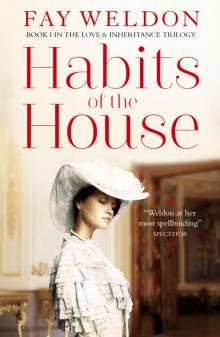 Habits of the House
Habits of the House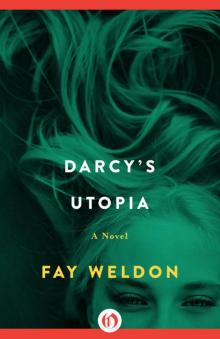 Darcy's Utopia
Darcy's Utopia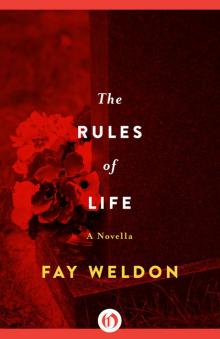 The Rules of Life
The Rules of Life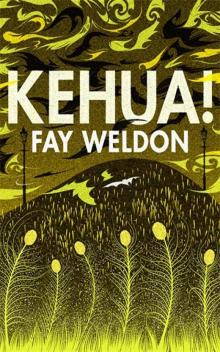 Kehua!
Kehua!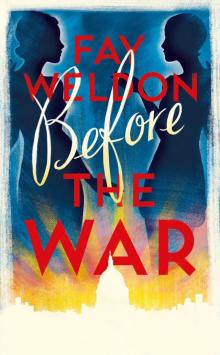 Before the War
Before the War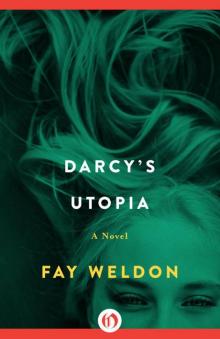 Darcy's Utopia: A Novel
Darcy's Utopia: A Novel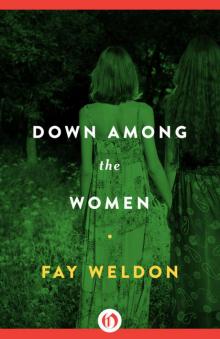 Down Among the Women
Down Among the Women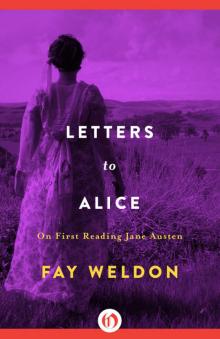 Letters to Alice
Letters to Alice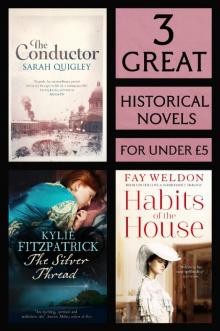 3 Great Historical Novels
3 Great Historical Novels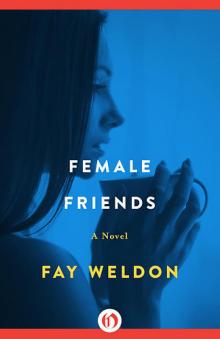 Female Friends
Female Friends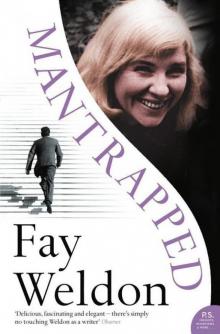 Mantrapped
Mantrapped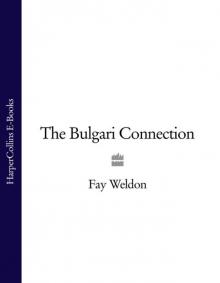 The Bulgari Connection
The Bulgari Connection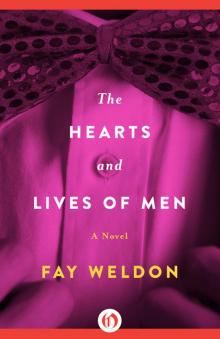 The Hearts and Lives of Men
The Hearts and Lives of Men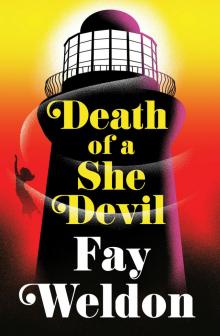 Death of a She Devil
Death of a She Devil